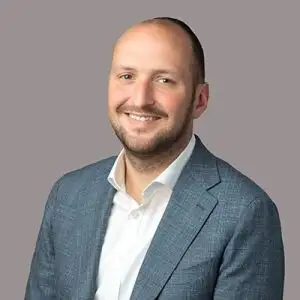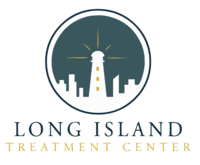





Founded
Occupancy
Accreditation
Who We Treat
Specializations
Levels of Care
About Long Island Treatment Center
Accepted Insurances
Treatment
Levels of Care
Day Treatment
In a PHP, patients live at home but follow an intensive schedule of treatment. Most programs require you to be on-site for about 40 hours per week.
Outpatient
During outpatient rehab, patients attend a structured treatment program while continuing to live at home.
Intensive Outpatient Program
In an IOP, patients live at home or a sober living, but attend treatment typically 9-15 hours a week. Most programs include talk therapy, support groups, and other methods.
Methods
Evidence-Based
A combination of scientifically rooted therapies and treatments make up evidence-based care, defined by their measured and proven results.
Individual Treatment
Individual care meets the needs of each patient, using personalized treatment to provide them the most relevant care and greatest chance of success.
1-on-1 Counseling
Patient and therapist meet 1-on-1 to work through difficult emotions and behavioral challenges in a personal, private setting.
Art Therapy
Visual art invites patients to examine the emotions within their work, focusing on the process of creativity and its gentle therapeutic power.
Relapse Prevention Counseling
Relapse prevention counselors teach patients to recognize the signs of relapse and reduce their risk.
Group Therapy
Two or more people meet with a therapist together. Patients get valuable peer support, strengthen interpersonal skills, and improve self-awareness.
Personalized Treatment
The specific needs, histories, and conditions of individual patients receive personalized, highly relevant care throughout their recovery journey.
Twelve Step Facilitation
12-Step groups offer a framework for addiction recovery. Members commit to a higher power, recognize their issues, and support each other in the healing process.
Twelve Step
Incorporating spirituality, community, and responsibility, 12-Step philosophies prioritize the guidance of a Higher Power and a continuation of 12-Step practices.
Family Involvement
Providers involve family in the treatment of their loved one through family therapy, visits, or both–because addiction is a family disease.
Conditions We Treat
Personality Disorders
These disorders affect an individual's way of thinking, feeling, and behaving, often leading to strained relationships and significant emotional distress.
ADHD, ADD
ADHD, characterized by inattention, hyperactivity, and impulsivity, stems from dopamine irregularities and is a common mental health condition.
Alcohol
Dependence on alcohol for coping or excessive drinking indicates a disorder that can have serious health and social implications.
Anxiety
Anxiety disorders involve excessive worry and physical symptoms such as tension and elevated blood pressure, often interfering with daily life.
Benzodiazepines
Used for treating anxiety and sleep problems, benzodiazepines can be highly addictive, leading to mood swings and impaired judgement when abused.
Bipolar
Bipolar disorder features intense mood swings from highs (mania) to lows (depression), impacting one's ability to function normally.
Co-Occurring Disorders
When someone has both a mental health disorder and substance abuse issue, it is known as a dual diagnosis or co-occurring disorder.
Cocaine
Cocaine is a powerful stimulant that creates euphoria but can lead to severe health issues like heart problems and psychosis with prolonged use.
Codependency
This behavioral condition involves excessive emotional or psychological reliance on a partner, often seen in relationships involving addiction.
Drug Addiction
Substance addiction involves compulsive drug use despite adverse consequences, negatively affecting health, relationships, and daily life.
Ecstasy
Ecstasy, known for inducing intense euphoria and sensory enhancement, can lead to significant issues like insomnia and cognitive impairments when abused.
Heroin
Heroin, an illicit opioid, is highly addictive and can cause severe health issues such as heart problems, insomnia, and collapsed veins.
Methamphetamine
Methamphetamine increases energy and alertness but can cause severe mental and physical health issues, including paranoia and agitation, with long-term use.
Opioids
Opioids, which include prescription painkillers and heroin, can lead to addiction due to their pain-relieving and euphoric effects.
Prescription Drugs
Misuse of prescribed medications, driven by cravings or overuse, can lead to addiction, necessitating professional intervention.
Post Traumatic Stress Disorder
PTSD arises from traumatic events, causing symptoms like flashbacks, anxiety, and intrusive thoughts that can persist long after the event.
Synthetic Drugs
Lab-made drugs, unlike natural ones, include stimulants and synthetic cannabinoids, which can have unpredictable and dangerous effects.
Trauma
Traumatic experiences can result in long-lasting mental health challenges, often referred to collectively as trauma, requiring specialized care.
Chronic Relapse
Repeated relapse after periods of recovery from addiction is a chronic condition that requires ongoing treatment and support.
Obsessive Compulsive Disorder
OCD involves persistent, unwanted thoughts and repetitive behaviors, disrupting daily life and requiring targeted treatment to manage.
Stress
While stress can help you adapt to challenges, chronic stress can lead to serious physical and mental health problems that require intervention.
Eating Disorders
Eating disorders are characterized by unhealthy eating behaviors and distorted body image, often requiring comprehensive treatment.
Grief and Loss
Experiencing grief is a natural part of dealing with loss, but when it becomes overwhelming, it can disrupt daily life. Professional help can support recovery.
Depression
Depression ranges from mild to severe, causing feelings of fatigue, numbness, and disinterest in daily activities, impacting overall well-being.
Schizophrenia
Schizophrenia is a severe mental disorder causing hallucinations, delusions, and disorganized thinking, needing comprehensive treatment.
Staff

Daniel Schaffer
Chief Executive Officer

